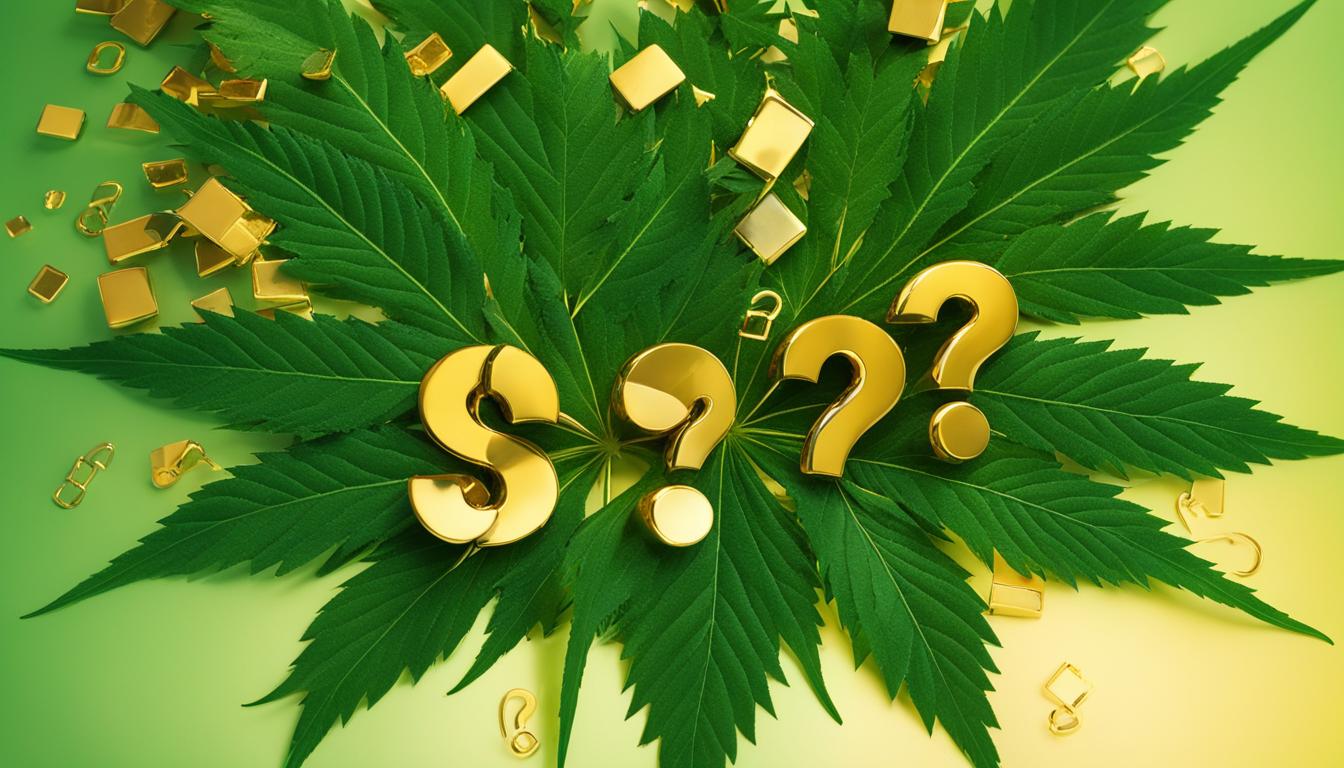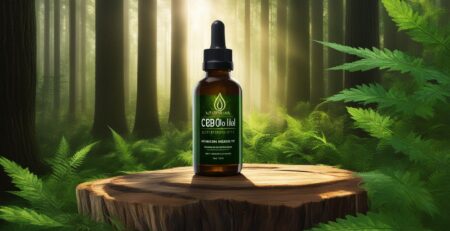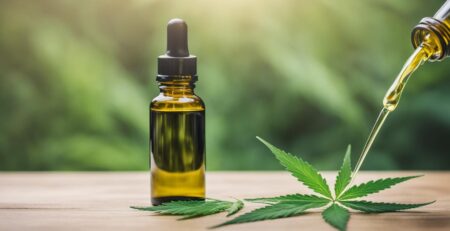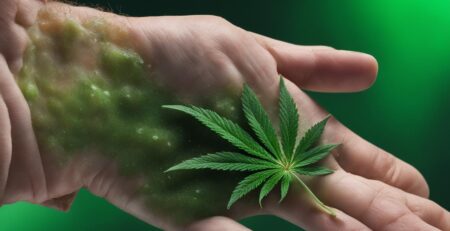Get Your CBD Questions Answered: The Ultimate FAQ
Welcome to our comprehensive CBD FAQ, where we aim to provide you with all the information you need to understand and navigate the world of CBD. With CBD gaining popularity in the wellness industry and mainstream media, it's important to separate fact from fiction and get a clear understanding of its uses and benefits. Whether you're a beginner or someone looking to expand their knowledge, we've got you covered with answers to frequently asked questions about CBD.
At [Your Brand Name], we believe that education is key to making informed decisions, especially when it comes to your health and well-being. As CBD users ourselves, we understand the importance of accurate information, and that's why we've compiled this ultimate CBD FAQ to address all your burning questions.
From defining what CBD is and how it works in our bodies, to exploring its potential benefits and different methods of consumption, we've covered every aspect in detail. We'll also guide you in choosing reputable CBD brands, provide information on legality and purchasing options, and even touch upon the use of CBD for pets. By the end of this guide, you'll have a solid foundation of CBD knowledge to make informed decisions for yourself.
So sit back, relax, and let us guide you through the world of CBD. Whether you're seeking relief from stress, inflammation, or simply looking to optimize your overall well-being, we're here to help. Read on to have all your CBD questions answered.
Key Takeaways:
- The CBD FAQ provides comprehensive information on a range of topics related to CBD.
- Understand the definition of CBD and how it interacts with our bodies.
- Explore the potential benefits of CBD, including stress reduction and inflammation relief.
- Learn about different methods of consuming CBD and finding reputable brands.
- Discover the legal considerations and purchasing options for CBD.
What is CBD?
Before diving into the world of CBD, let's start with the basics: what exactly is CBD? CBD, or cannabidiol, is an essential oil extracted from the cannabis or hemp plant. It is one of over 100 chemical compounds known as cannabinoids found in these plants. CBD is non-psychoactive, meaning it does not produce the “high” typically associated with cannabis. Instead, it offers potential therapeutic benefits without the mind-altering effects.
CBD is commonly extracted from hemp plants, which contain high levels of CBD and low levels of THC, the psychoactive compound in cannabis. This makes CBD legal in all 50 states in the US, as long as it contains less than 0.3% THC. On the other hand, THC is responsible for the intoxicating effects of cannabis.
It's important to note the difference between CBD oil and hemp oil. CBD oil is made by extracting CBD from the flowers, leaves, and stalks of the hemp plant, while hemp oil is derived from the seeds of the plant. CBD oil is often used for its potential therapeutic properties, while hemp oil is commonly used in cooking and skincare products.
Table: CBD vs. THC
| CBD | THC |
|---|---|
| Non-psychoactive | Psychoactive |
| Legal in all 50 states | Regulated and restricted |
| Potential therapeutic benefits | Intoxicating effects |
Understanding the fundamentals of CBD sets the stage for exploring its potential uses and benefits. In the next section, we'll delve into how CBD interacts with our bodies and its effects on our overall well-being.
How does CBD work in our bodies?
Understanding how CBD works in our bodies is key to unlocking its potential benefits. CBD interacts with the endocannabinoid system (ECS), a complex network of receptors and neurotransmitters involved in regulating various physiological functions and maintaining homeostasis.
The ECS produces endocannabinoids, which are similar to the cannabinoids found in cannabis plants like CBD. These endocannabinoids bind to cannabinoid receptors, namely CB1 and CB2 receptors, located throughout our bodies. CB1 receptors are primarily found in the central nervous system, while CB2 receptors are more prevalent in our immune system and peripheral tissues. When endocannabinoids bind to these receptors, they help regulate processes like pain perception, immune response, mood, and inflammation.
CBD enhances the effects of endocannabinoids by preventing their breakdown. It inhibits enzymes that break down endocannabinoids, allowing them to stay in our system for longer periods. As a result, CBD may potentially aid in pain relief, reduce inflammation, and promote overall well-being. However, it's important to note that research on CBD's effects is still ongoing, and more studies are needed to fully understand its mechanisms and therapeutic potential.
Table: Effects of CBD on the Endocannabinoid System
| Effect | Explanation |
|---|---|
| Pain Relief | CBD may enhance the pain-relieving effects of the endocannabinoid system by preventing the breakdown of endocannabinoids. |
| Inflammation Reduction | By inhibiting the breakdown of endocannabinoids, CBD may help reduce inflammation, which is associated with various health conditions. |
| Homeostasis Regulation | CBD helps maintain balance in the body by enhancing the effects of endocannabinoids on CB1 and CB2 receptors, promoting overall well-being. |
It's important to consult with a healthcare professional before using CBD, especially if you have any underlying medical conditions or are currently taking medication. They can provide personalized guidance and help ensure CBD is safe and appropriate for you.
Why would I want to use CBD?
CBD offers a range of potential benefits that make it an appealing option for many individuals. Here are a few key reasons why you might consider incorporating CBD into your wellness routine:
- Stress Relief: CBD has been shown to have potential stress-reducing properties, helping to promote a sense of calm and relaxation.
- Inflammation Reduction: Many people turn to CBD for its potential anti-inflammatory effects, which may help alleviate discomfort and support overall well-being.
- Better Sleep: CBD has been associated with improved sleep quality, making it an appealing option for individuals struggling with insomnia or other sleep-related issues.
“CBD has the potential to alleviate stress, reduce inflammation, and improve sleep quality, making it a versatile compound for promoting overall well-being.”
It's important to note that while CBD can offer benefits, it is not a cure-all or necessary for daily life. CBD should be viewed as a supplement to a healthy lifestyle, and it's always a good idea to consult with a healthcare professional before starting any new wellness regimen or incorporating CBD into your routine.
Next, we will explore different methods of taking CBD to find the one that suits you best.
| Benefits of CBD |
CBD for Stress |
CBD for Inflammation |
CBD for Sleep |
|---|---|---|---|
| Reduces stress levels |
Calming effects on the mind and body |
Potential anti-inflammatory properties |
Improves sleep quality |
| Supports overall well-being |
Aids in stress management |
Can help relieve discomfort |
Promotes a more restful sleep |
How to Take CBD: Dosage, Oil, Drops, and Topicals
When it comes to taking CBD, there are several methods to choose from depending on your preferences and needs. Understanding how to take CBD properly is essential for experiencing its potential benefits effectively. Here, we will explore different ways to consume CBD, including dosage recommendations and the various forms it comes in.
Methods of Consumption
One common method of taking CBD is through sublingual administration, which involves placing CBD oil drops under the tongue. This allows for quick absorption into the bloodstream through the sublingual glands. CBD oil is available in various strengths, and dosage recommendations may vary depending on the individual and the desired effects.
Another popular way to incorporate CBD into your routine is by using topicals. CBD topicals come in the form of creams, balms, or salves that can be applied directly to the skin. They are especially useful for targeting specific areas of discomfort and promoting localized relief.
Dosage Recommendations
Determining the right CBD dosage for you may require some experimentation, as there is no one-size-fits-all approach. It is recommended to start with a low dosage and gradually increase until you achieve the desired effects. Consulting with a healthcare professional can also provide valuable guidance in finding the optimal dosage for your specific needs.
| Form of CBD | Dosage Recommendation |
|---|---|
| CBD Oil | Start with 5-10mg per day and gradually increase as needed. |
| CBD Topicals | Apply a small amount to the affected area and massage gently. |
Choosing the Right CBD Product
When selecting a CBD product, it's important to choose a reputable brand that prioritizes quality and safety. Look for companies that use third-party lab testing to ensure their products are free from contaminants and accurately labeled in terms of CBD content. Additionally, consider the type of CBD product that suits your preferences, whether it's full-spectrum CBD oil, CBD isolate, or a specific topical formulation.
By understanding how to take CBD and finding the right method and dosage for you, you can maximize the benefits of this natural compound and incorporate it into your wellness routine.
Choosing the Right CBD Brand: Ensuring Quality and Safety
When it comes to purchasing CBD products, it's crucial to choose brands that prioritize quality and safety. With the increasing popularity of CBD, the market is flooded with numerous options, making it challenging to differentiate between reputable brands and those that may not meet the necessary standards. To help you make an informed decision, we have compiled a list of factors to consider when choosing a CBD brand.
Third-Party Lab Testing
One of the most important factors to look for is third-party lab testing. Reputable CBD brands will ensure that their products undergo rigorous testing by independent laboratories. These tests provide transparency and verify the quality, purity, and potency of the CBD products.
Quote: “We believe in full transparency, which is why all our products are tested by third-party laboratories. Our lab reports are readily available for customers to review, ensuring the highest standards of quality and safety.”
By reviewing the lab reports, you can assess the CBD content, THC levels (to ensure they comply with legal limits), and check for the absence of any harmful contaminants such as pesticides, heavy metals, or residual solvents. This information allows you to make an informed decision and choose a brand that prioritizes your well-being.
Manufacturing Practices
It's also essential to consider the manufacturing practices of the CBD brand. Reputable manufacturers use reliable extraction methods, such as CO2 extraction, which ensures the purity and integrity of the CBD oil. Additionally, they adhere to strict quality control standards throughout the production process to ensure consistency and safety.
When researching CBD brands, look for those that provide detailed information about their sourcing and manufacturing practices. This demonstrates their commitment to producing high-quality CBD products that you can trust.
Customer Reviews and Recommendations
Another valuable resource when choosing a CBD brand is customer reviews and recommendations. Hearing about the experiences of others who have used the products can provide insights into the brand's quality, effectiveness, and customer service. Look for reviews on trustworthy platforms and consider reaching out to friends or online communities for recommendations.
By considering these factors – third-party lab testing, manufacturing practices, and customer reviews – you can select a CBD brand that meets your quality and safety standards. Remember, investing in a reputable brand ensures you are getting a high-quality CBD product that can potentially benefit your overall well-being.
Can I test different CBD brands without spending too much money?
If you're interested in trying out different CBD brands but don't want to break the bank, there are options available that allow you to sample products without a significant financial commitment. Many CBD brands offer samples or smaller sizes of their products, giving you the opportunity to test different formulations and find one that works best for you.
These samples are often affordable and provide enough product for you to get a sense of its effects and benefits. They allow you to try out different CBD brands, flavors, strengths, and delivery methods, such as oils, capsules, or topicals, before investing in a full-sized product. This can be particularly helpful if you're new to CBD and unsure about which brand or product would suit your needs.
By testing different CBD brands, you can also evaluate their quality and effectiveness. Pay attention to factors like the taste, consistency, and how they make you feel. Keep track of your experiences with each brand and product to make an informed decision about which one you prefer. This way, you can feel more confident in your CBD purchase and ensure that you're getting a product that meets your expectations.
Table: Comparison of CBD Sample Options
| Brand | Sample Size | Price Range | Product Types |
|---|---|---|---|
| Brand A | 5ml | $10-$15 | Oil, Capsules, Topicals |
| Brand B | 10ml | $15-$20 | Oil, Edibles |
| Brand C | Sample Pack | $20-$25 | Oil, Topicals |
“Trying different CBD brands through samples is an excellent way to explore the market and find the products that resonate with you. It allows you to experience the benefits of CBD without committing to a full-sized product upfront. Plus, it's an affordable way to determine which brand and product work best for your unique needs.” – CBD Enthusiast
Where to Buy CBD: Understanding CBD Legality and Regulations
When it comes to purchasing CBD, there are a few important factors to consider, such as where to buy it and the legal aspects surrounding CBD products. In the United States, CBD is legal in most states, with some exceptions. It's important to understand the laws and regulations in your specific state before making a purchase.
You can buy CBD online from reputable retailers, which often offer a wide range of products to choose from. Online shopping provides convenience and access to customer reviews, allowing you to make an informed decision. Additionally, specialty CBD and tobacco shops may carry CBD products, offering a more personalized shopping experience.
It's crucial to ensure that the CBD products you purchase are of high quality and comply with regulations. Look for reputable manufacturers that follow good manufacturing practices and use third-party lab testing to verify the potency and purity of their products. These lab reports should be readily available for customers to review.
Being aware of the legality and regulations surrounding CBD will help ensure that you are making a legal and safe purchase. By purchasing from reputable sources and understanding the laws in your state, you can confidently explore the benefits that CBD has to offer.
Table: CBD Legality by State
| State | Legality | Additional Notes |
|---|---|---|
| Alabama | Legal | – |
| Alaska | Legal | – |
| Arizona | Legal | – |
| Arkansas | Legal | – |
| California | Legal | – |
| Colorado | Legal | – |
| Connecticut | Legal | – |
| Delaware | Legal | – |
| Florida | Legal | – |
| Georgia | Legal | – |
| Hawaii | Legal | – |
Can I Use CBD for Pets?
Many pet owners wonder if CBD can be beneficial for their furry friends, and the answer is yes! CBD has shown potential in helping pets with various health issues, including anxiety, pain, and inflammation. However, it's important to approach CBD use for pets with caution and consult with a veterinarian before starting any new treatments.
When it comes to CBD safety for pets, there are a few key considerations to keep in mind. First, always choose CBD products specifically formulated for animals, as human-grade CBD may contain ingredients that are harmful to pets. Additionally, it's crucial to ensure that the CBD is derived from hemp plants and contains less than 0.3% THC, as THC can be toxic to animals.
Another important factor to consider is the dosage of CBD for pets. Dosage is typically determined based on the pet's weight, and it's crucial to start with a low dose and gradually increase if needed. Consulting with a veterinarian will help determine the appropriate dosage for your pet's specific needs.
Table: CBD Dosage Guidelines for Pets
| Pet Weight | Starting Dosage | Recommended Dosage Range |
|---|---|---|
| Small (under 20 lbs) | 1-2 mg | 1-5 mg |
| Medium (20-60 lbs) | 3-5 mg | 3-15 mg |
| Large (over 60 lbs) | 6-8 mg | 6-30 mg |
Remember, CBD is not a cure-all, and results may vary for each pet. It's crucial to monitor your pet's response to CBD and make adjustments as needed. If you notice any adverse effects or changes in behavior, discontinue use and consult with a veterinarian.
Is CBD Addictive? Is It Safer Than My Current Medication?
When it comes to CBD, many people have concerns about its addictive potential and safety compared to their current medications. Let's address these questions and provide some clarity.
Is CBD Addictive?
No, CBD is not addictive. According to a World Health Organization report, CBD exhibits no effects indicative of any abuse or dependence potential. It does not produce the euphoric “high” associated with THC, the psychoactive compound found in cannabis. CBD works differently in the body, interacting with the endocannabinoid system to promote balance and well-being.
Is CBD Safer Than My Current Medication?
The safety of CBD compared to your current medication depends on various factors, including the specific medication you are taking and your individual health condition. It's crucial to consult with a healthcare professional before incorporating CBD into your routine, especially if you are already on prescribed medications. They can provide guidance and help assess any potential drug interactions or contraindications.
“CBD is generally well-tolerated, with few side effects when used properly. However, it's important to note that CBD can interact with certain medications.”
– National Institute on Drug Abuse
While CBD is generally well-tolerated, it's essential to be aware of possible side effects such as fatigue, diarrhea, and changes in appetite. Additionally, CBD may interact with medications metabolized by the liver's cytochrome P450 enzyme system, potentially affecting their effectiveness or increasing the risk of side effects. This highlights the importance of consulting with a healthcare professional who is knowledgeable about CBD.
Remember, CBD should not be considered a replacement for prescribed medication without medical guidance. It's essential to have open and honest conversations with your healthcare provider to ensure you make informed decisions about your health and well-being.
Conclusion
In conclusion, this CBD FAQ aims to provide you with comprehensive information about CBD and answer your burning questions. We understand that there is a lack of in-depth knowledge and misinformation surrounding CBD, which is why we have crafted this ultimate guide.
We have covered a range of topics, including the definition of CBD, how it works in our bodies, its potential benefits, methods of consumption, choosing reputable brands, and legal considerations. Whether you are a CBD beginner or someone looking to optimize their well-being, this FAQ will help you navigate the world of CBD with confidence.
Remember, CBD is a personal choice and not necessary for daily life. However, it may offer benefits such as stress reduction, inflammation relief, and improved sleep. Before incorporating CBD into your routine, we recommend doing thorough research and consulting with healthcare professionals to ensure its suitability for your specific needs.
FAQ
What is CBD?
CBD stands for cannabidiol, which is an essential oil extracted from the cannabis or hemp plant.
How does CBD work in our bodies?
CBD interacts with the endocannabinoid system (ECS) in our bodies, which regulates various physiological functions. CBD enhances the effects of endocannabinoids by preventing their breakdown, potentially aiding in pain relief and reducing inflammation.
Why would I want to use CBD?
CBD has various potential benefits, including reducing stress, inflammation, and aiding with sleep. While CBD is not necessary for daily life, it can be beneficial for optimizing overall well-being.
How do I take CBD?
The method of CBD consumption depends on the product, but CBD drops taken sublingually is a common method. Dosage varies based on individual needs and can be determined through trial and error or consultation with a healthcare professional.
How can I tell what brands are safe and of good quality?
Look for reputable manufacturers that use CO2 extraction and provide third-party lab testing. Check for the CBD content, THC levels, and any potential contaminants in lab reports.
Can I test different CBD brands without spending too much money?
Some brands offer samples or smaller sizes of their products for consumers to try without spending a lot of money. This allows users to determine what works best for them before committing to a full-sized product.
Where can I purchase CBD? Is it legal?
CBD can be purchased online from reputable retailers or in specialty CBD and tobacco shops. CBD is legal in most states in the US, with some exceptions, and is also legal in many countries.
Can I use CBD for pets?
CBD can be used for pets, but it's essential to consult with a veterinarian to ensure safety and determine the appropriate dosage. Limited research suggests that CBD may have some benefits for pets.
Is CBD addictive? Is it safer than my current medication?
CBD is not addictive and has few side effects when used properly. It's important to consult with a healthcare professional before using CBD, especially if currently taking medication, as it may interact with certain pharmaceuticals.
Source Links
- https://www.livingminnaly.com/allposts/2019/7/10/everything-you-want-to-know-about-cbd
- https://purekana.com/blog/cbd-education/cbd-faq-and-guide/
- https://plainjane.com/blog/the-ultimate-plain-jane-cbd-faq/











Leave a Reply